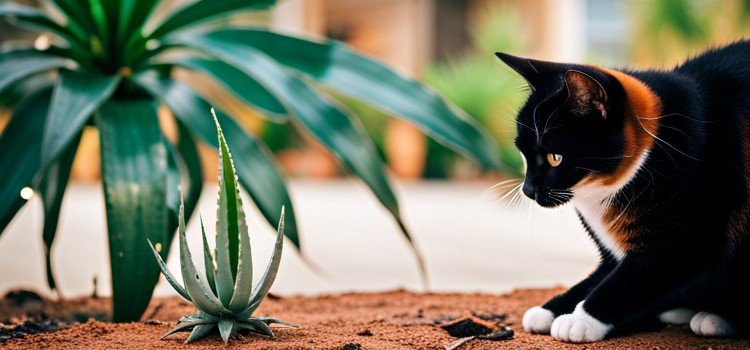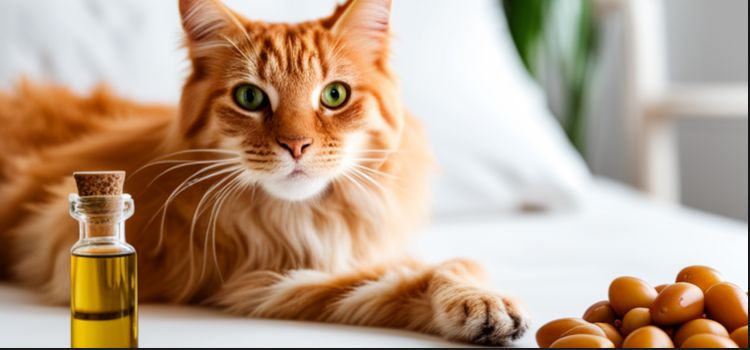As an Amazon Associate committed to the mission of improving the lives of our readers, Live-Clear.com receives a small commission from eligible purchases made through our affiliate links. This revenue enables us to keep producing insightful articles and other material.
Cocoa butter is a popular ingredient for its various applications in cosmetics, skincare, and some recipes. Many appreciate its moisturizing properties, commonly found in lotions, creams, and lip balms. But what about cocoa butter’s safety for cats? Can our feline companions safely come into contact with cocoa butter, or are there risks associated with it? In this comprehensive blog post, we will explore the topic in detail and provide all the information you need to keep your beloved cats safe.

What is Cocoa Butter?
Cocoa butter, or theobroma oil, is a pale-yellow, edible vegetable fat derived from the cocoa bean. It is a primary ingredient in chocolate production, contributing to the smooth and creamy texture of your favorite chocolate bars. Additionally, cocoa butter is widely used in the cosmetic industry due to its moisturizing and emollient properties. It can be found in lotions, creams, lip balms, and pharmaceutical formulations.
Why is Cocoa Butter Attractive to Cats?
Cats are naturally curious creatures, often drawn to items with interesting textures or scents. Cocoa butter has a rich, pleasant fragrance and a creamy texture, which can make it appealing to your feline friend. If you’ve ever applied cocoa butter to your skin, you might have noticed your cat showing a keen interest in the process.
However, this curiosity can lead to a potentially hazardous situation for your cat if they decide to investigate further.
Is Cocoa Butter Safe for Cats?
Cocoa Butter Toxicity
The primary concern regarding cocoa butter and cats is its potential toxicity. While cocoa butter itself is not toxic to cats, it is essential to note that it is a byproduct of cocoa processing, and cocoa can be toxic to cats. Cocoa contains theobromine and caffeine, which are stimulants that can have adverse effects on feline health.
Theobromine and caffeine can cause various symptoms in cats, including:
- Vomiting
- Diarrhea
- Increased heart rate
- Tremors
- Seizures
- Increased body temperature
- Muscle rigidity
- Death in severe cases
The severity of these symptoms depends on the amount of theobromine and caffeine ingested and the cat’s size and sensitivity. It is important for cat owners to be aware of the potential dangers of cocoa and to keep all cocoa-containing products out of their pet’s reach. If a cat accidentally ingests cocoa or shows any of these symptoms, it is crucial to seek immediate veterinary attention to ensure their well-being.
Cats and Ingesting Cocoa Butter
If your cat ingests a small amount of cocoa butter, it is unlikely to result in theobromine or caffeine poisoning. However, it is essential to be cautious, as some cats may be more sensitive than others, and repeated ingestion could lead to health issues.
If your cat consumes a significant quantity of cocoa butter or products containing cocoa as a primary ingredient, such as chocolate, it is crucial to contact your veterinarian immediately. They can guide you on how to proceed and monitor your cat’s condition.
Topical Use of Cocoa Butter on Cats
Using cocoa butter topically on your cat’s skin is generally considered safe as it is pure cocoa butter without added ingredients or fragrances that may harm cats. However, it’s essential to monitor your cat for any adverse reactions, such as skin irritation or allergic responses, when using any new product on their skin.
To be safe, consult with your veterinarian before using cocoa butter or any other skincare product on your cat. They can provide recommendations based on your cat’s specific needs and sensitivities.
What to Do if Your Cat Ingests Cocoa Butter?
If you suspect that your cat has ingested cocoa butter or a product containing cocoa, you should take the following steps:
- Contact Your Veterinarian: Call your veterinarian or an emergency pet hotline immediately. Describe the situation, the quantity ingested, and your cat’s symptoms.
- Monitor Your Cat: Keep a close eye on your cat for unusual behavior or symptoms. Note any changes in their energy levels, behavior, or physical condition.
- Do Not Induce Vomiting: Do not attempt to induce vomiting in your cat without consulting your veterinarian, as it can be dangerous in some cases.
- Follow Veterinary Advice: Your veterinarian will guide you on whether immediate medical intervention is necessary. They recommend bringing your cat in for a checkup and treatment.
Remember that early intervention is crucial regarding theobromine and caffeine toxicity. Do not hesitate to seek professional help if you suspect your cat has ingested cocoa butter or any cocoa-containing product.
Alternatives to Cocoa Butter for Cat-Friendly Care
If you’re concerned about the safety of cocoa butter for your cat or want to explore alternative products for their care, there are several cat-friendly alternatives available:
- Unscented Pet-Safe Lotions: Look for pet-safe lotions specifically designed for cats. These products are formulated to be non-toxic and safe for feline skin.
- Coconut Oil: Coconut oil is often used as a natural moisturizer for cats. It can help alleviate dry skin and is generally safe when applied topically. Ensure that the coconut oil you use is plain and free from added fragrances or additives.
- Hydration: Proper hydration is essential for your cat’s skin and overall health. Ensure that your cat has access to clean water at all times, and consider adding wet cat food to their diet for additional moisture.
- Consult Your Veterinarian: If your cat has specific skin concerns, it’s always a good idea to consult your veterinarian. They can recommend cat-friendly products tailored to your pet’s needs.

Conclusion
In summary, while cocoa butter itself is not toxic to cats, it is essential to exercise caution when using it around your feline companions. The primary concern is that cocoa butter is a byproduct of cocoa processing, and cocoa contains substances like theobromine and caffeine that can be toxic to cats when ingested in large quantities.
Regarding topical use, consult with your veterinarian before applying any new skincare products to your cat’s skin. There are also alternative, cat-friendly skincare products available to keep your furry friend’s skin healthy and moisturized.
FAQs (Frequently Asked Questions)
No, cats should not consume cocoa butter, as it is a byproduct of cocoa processing, and cocoa can be toxic to cats due to theobromine and caffeine content. Ingesting cocoa butter could lead to adverse health effects.
While unscented cocoa butter may not contain added fragrances, it is still derived from cocoa and should be used cautiously on cats. It is advisable to consult your veterinarian before using any skincare products on your cat.
If you suspect your cat has ingested cocoa butter, contact your veterinarian immediately. Do not induce vomiting without professional guidance. Early intervention is essential to address potential theobromine and caffeine toxicity.
Yes, there are safe alternatives for cat skin care, such as unscented pet-safe lotions, plain coconut oil, and maintaining proper hydration. Consult with your veterinarian for personalized recommendations.
Cocoa butter can be used on dogs, but it should be done cautiously and in moderation. Dogs are generally less sensitive to theobromine and caffeine than cats, but it’s essential to monitor them for adverse reactions.
Always prioritize your cat’s safety and well-being, and if you suspect they have ingested cocoa butter or any cocoa-containing product, seek immediate veterinary assistance. A quick response can make a significant difference in the outcome and your cat’s health.
Amazon and the Amazon logo are trademarks of Amazon.com, Inc, or its affiliates.



